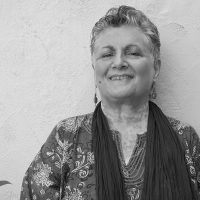The word “right” is a translation of the Pali word, Samma. The root of this word comes from an ancient Indian musical term meaning to be “in tune,” or in harmony. So, when a step on the path is right, it is in harmony with the other steps on the path. It’s also in harmony with the goal of the path, which is freedom from suffering through the development of wisdom and compassion.
We spend a significant portion of our lives in the practice of some form of livelihood. Right Livelihood is work that matters deeply to us and also gives something back to the world. The Zen Buddhist teacher Thich Nhat Hanh in his book, The Heart of the Buddha’s Teachings says:
“To practice Right Livelihood, you have to find a way to earn your living
without transgressing your ideals of love and compassion.
The way you support yourself can be an expression of your deepest self,
or it can be a source of suffering for you and others….
Our vocation can nourish our understanding and compassion, or erode them.
We should be awake to the consequences, far and near, of the way we earn our living.”
Since we spend almost half of our lives at work, the quality of what we bring to our work – despite what we do – has deep resonance in the rest of our lives. But, is right livelihood just a choice of work or is it something else too?
According to Thay, its the manner in which we get ready for work, go to work and the way we are at work – which affects not only those we work with, but also the quality of our work, and ourselves. The mindful workday begins when we wake and remind ourselves of the gift of 24 hours. Gratitude sets the tone. We set our intentions for the day with mindful breathing. Then other preparations – getting ready, eating breakfast etc – all present moments to remind ourselves of our aliveness as we set out for the day.
Energized by our morning mindfulness reminders that prepare us to go out into the world – conscious, curious and compassionate – we take the time to breathe, walking out into the day, we notice Mother Earth all around us, nourishing and sustaining us.
Commutes can easily unravel all our intentions. Thay reminds us that when we are caught in traffic, whether on the highway or in the middle of the city, we don’t fight it but just accept it, knowing that we’re alive and that the present moment is the only moment available to us.
When we talk of work, we also acknowledge that peace is not normally associated with most types of work. In fact, it seems counter-intuitive. Because peace doesn’t come easily when we are working. We almost have to seek it out – create a space, so to speak – for peace to find us. Sitting quietly, without purpose, can be an opportunity to invite peace in.
More than often, work requires being on the phone, internet and messaging. Instead of seeing these as intrusions, we can see them as opportunities for a mindfulness practice. Every ring and ting can act as a reminder to stop what we are doing and bring ourselves back to the present moment.
Dealing with the many challenges of work – our energies, strong emotions, our differences with others and communicating respectfully with colleagues, is not easy. Then, there are the actual tasks of work, where we’re often overburdened with more than we can handle in one “normal” workday. In the Buddhist tradition, Thay describes the three ‘powers’ that are quite different than the power of fame, wealth and competition.
The first power is understanding – the roots of suffering in ourselves, in others and in the world. “Understanding, says Thay, is a great power. It gives rise to compassion.”
The second power is love. Not typically associated with the workplace. But says Thay, “It will free you and help you to respond to difficulties you have with others.” So, rather than acting on a sense of our victimhood with others who we feel have wronged us, we turn instead towards love.
The third power is letting go. And, this is thinking about holding on to what we cannot control, as if we can control it. It takes artful practice to stay present, committed and engaged without expecting that we can control the outcome. The ability to let go, once realized, can ultimately bring a great sense of relief and a deep knowledge of our place in relation to our external world.
Therefore, working mindfully means to live more mindfully. The challenge of learning to balance our energies between home and work isn’t easy. For many, who work long hours or multiple jobs while juggling family responsibilities, it often seems impossible.
Growing up, people would ask me ‘what do you want to be when you grow up?’. At that age, in the 1950s, being enamoured with Hindi movies and film songs, which were the major entertainment of the day, I said I wanted to be a dancer, or an actress. I didn’t have a clear picture of what I wanted to be or any ambition. For example, I didn’t aspire to be a doctor, lawyer, engineer or teacher etc. Nor did I want to be rich and powerful.
What I did want was a life outside the home and my father’s life was an inspiration. As a highly placed mining engineer he worked hard, loved his job and did a lot of good. My parents, as well to do people, were charitable, large hearted and gave abundantly.
Growing up, I knew I was privileged. My home, school, possessions and lifestyle were different and plentiful than the children of staff who worked for us, or of those villagers who lived around us. My Catholic school education inculcated in me the ethic to never forget the poor and those who had less than me. I learned that my duty, as a person with a privileged education, was to serve and be a useful member of society.
I kind of fell into my field of work. Not knowing what I wanted to do, I knew what I didn’t want to do. I didn’t want a corporate or a government job. I wasn’t interested in business. After my B.A degree in Kolkata, I took a job in a small business, which didn’t turn out well for me. Unsure of what to do next but determined to be financially independent I accepted a management trainee position in the oil firm Esso (now Exxon), but left six months later to join a rural development project in Madhya Pradesh. From then – the late 1960s to now, my work has been in the development sector – community organising, public policy, communications and capacity building.
My mother, when she was alive would often ask me: tell me, all this change you are trying to bring about, is it going to happen in your lifetime? I would smile and say: I’m not sure but I’m happy doing it. It’s the right thing for me.
I was adequately compensated during my career. I had enough to live on and the most challenging and rewarding work experiences, travel and friendships. I moved away from full time work in the year 2000 but continued to work in the development sector.
However, through these years, I must confess I did not work in a very mindful way. I was angry, arrogant, impatient, spoke harshly and often, withdrew love. While I had a successful career and loved my work, I often found it hard to cope with conflict, with supervisors, juniors and colleagues. I felt entitled and a sense that I was usually right, so why didn’t people just go along with me. I had a certain sense of dissatisfaction; I couldn’t put my finger on it.
My first face to face moment came in 1999, when I fell and broke my leg in Chiang Mai. I had surgery and returned to Delhi in 5 days. I found it very hard to believe that I would be laid up for close to six months. During this time, I learned to accept, let go and allow people to be there for me and indulge me. I felt the need to nurture myself, especially my spiritual self, which I realised I had ignored all these years. I came face to face with and reconciled with my anger and not mindful behaviour, tracking it back to events in my family while growing up.
On my feet, I attended some personal growth retreats, spiritual workshops and studied hypnotherapy. I began to incorporate these learning’s into my life and work. Attending Thay’s retreat in 2008 gave me and understanding of the importance of working and living mindfully. I tried very hard to bring to my work and relationships what I had learned. Slowly, I began to see the change in myself and the people around me. It wasn’t always easy, and even today, I often struggle with my unmindful ways.
But I am grateful and conscious of my journey and know I have a way to go to reach my goal.







Read 0 comments and reply